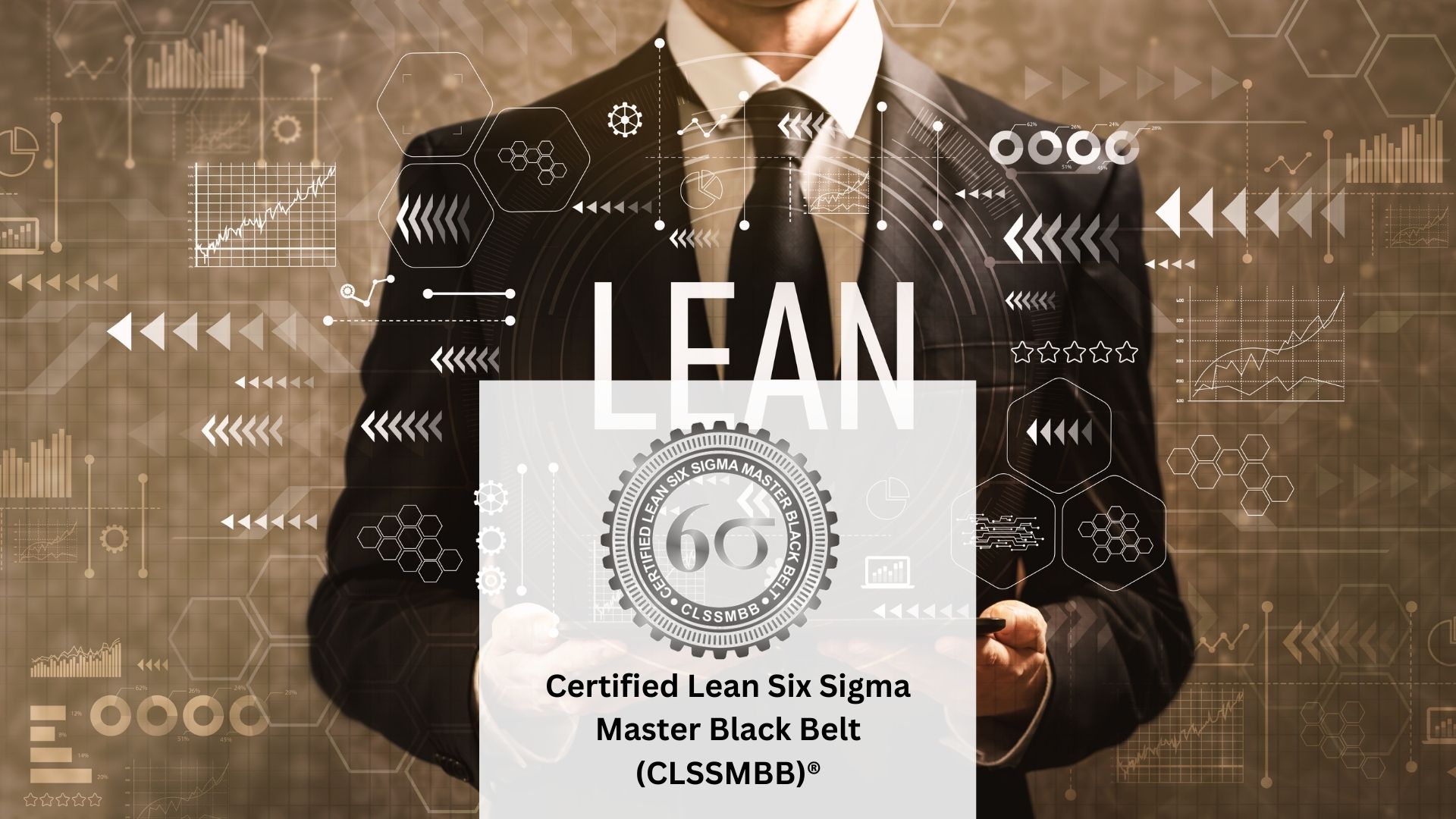Certified Lean Six Sigma Black Belt (CLSSBB)®
Certified Lean Six Sigma Black Belts (CLSSBB®) are professionals trained in advanced Lean Six Sigma methodology who lead improvement projects and mentor team members. Operating under Master Black Belts, they focus on project execution, leadership, and applying the DMAIC (Define, Measure, Analyze, Improve, Control) framework.
A CLSSBB® has deep knowledge of Six Sigma philosophies, Lean enterprise concepts, team leadership, and statistical analysis tools. They play a critical role in identifying inefficiencies, driving process improvements, and ensuring sustainable business performance.
Course Details
-
E-Course Duration: 35 to 40 Hours
-
Exam Pattern: 100 Multiple Choice Questions (80% passing – 80 out of 100 correct)
-
Exam Duration: 2 Hours (120 minutes)
-
Exam Format: Online, non-proctored, available anytime within 8 months
-
Exam Attempts: 2 attempts with each voucher (additional vouchers available if required)
-
Certification Validity: Lifetime
Course Outline
Section I – Organizational Roadblocks and Lean Management
-
Organizational Roadblocks & Resistance Analysis
-
Continuous Improvement Approaches (Lean & Six Sigma Overview)
-
Lean Management Concepts — TAKT Time, Cycle Time, PCE, Lead Time, SWIP, Setup Time, Changeover Time
-
Lean Tools — 5S, Kaizen, SMED, Heijunka
Section II – Pre-Define DMAIC & Define
-
DMAIC vs DFSS
-
Project Prioritization Matrix
-
Enterprise-wide vs LOB View, NPV & IRR
-
Project Charter, Team Dynamics, Champion’s Transfer of Project
-
SIPOC/COPIS Map, VOC/VOB/VOP, CTQ/CTS/CTC
-
VOC–CTQ Tree, Kano Model, Quality Function Deployment
-
Baseline Performance, Business Metrics for Y, Rolled Throughput Yield (RTY)
-
Statistical Definition of Six Sigma
Section III – Measure
-
Objectives of Measure Phase
-
Data Types & Distribution Models (Normal, Binomial, Poisson)
-
Measures of Central Tendency & Dispersion
-
Measurement Systems Analysis (GAGE RR, Attribute RR)
-
Stability & Capability Checks (Cp, Cpk, Cpkm, Attribute Capability)
-
Data Distribution Tools & Normality Checks (Anderson Darling, Ryan Joiner, Kolmogorov Smirnov)
-
Weibull Distributions & Business Correlation
Section IV – Analyze
-
Regression Analysis (Simple, Multiple, Curvilinear)
-
Fishbone Diagram, Pareto Charts
-
Common vs Special Cause Analysis
-
Hypothesis Testing (Parametric & Non-Parametric)
-
Statistical Validation
Section V – Improve
-
Cost-Benefit Analysis & Solution Prioritization (Pugh Matrix)
-
Design of Experiments (DOE): Basics, Replication, Randomization, Blocking
-
Main & Interaction Effects
-
Full & Fractional Factorial Experiments
-
Response Surface Designs, DOE with Regression, Practical Examples
Section VI – Control
-
Taguchi’s Loss Function
-
Control Charts (Variable & Attribute)
-
Measurement System Re-Analysis
-
Control Plan & Project Closure
-
Total Productive Maintenance (TPM)
-
Lean Process Improvement
Lean Process Improvement (Advanced Concepts)
-
Toyota Production System & TPS House
-
Five Critical Improvement Concepts
-
Kano Model for Value Understanding
-
Identifying Waste & Creating Lean Enterprises
-
PDSA Cycle, R-DMAIC-S Model
-
Lean Thinking Tools & Kaizen Events
-
Data Gathering & Mapping
Target Audience
This certification is ideal for professionals leading process improvement initiatives across industries such as:
-
Manufacturing, Operations, Logistics, and Quality
-
Customer Service, Sales, and Marketing
-
Healthcare and Education
-
IT, Engineering, and Safety Management
-
Project Managers and Team Leaders seeking advanced Six Sigma mastery








